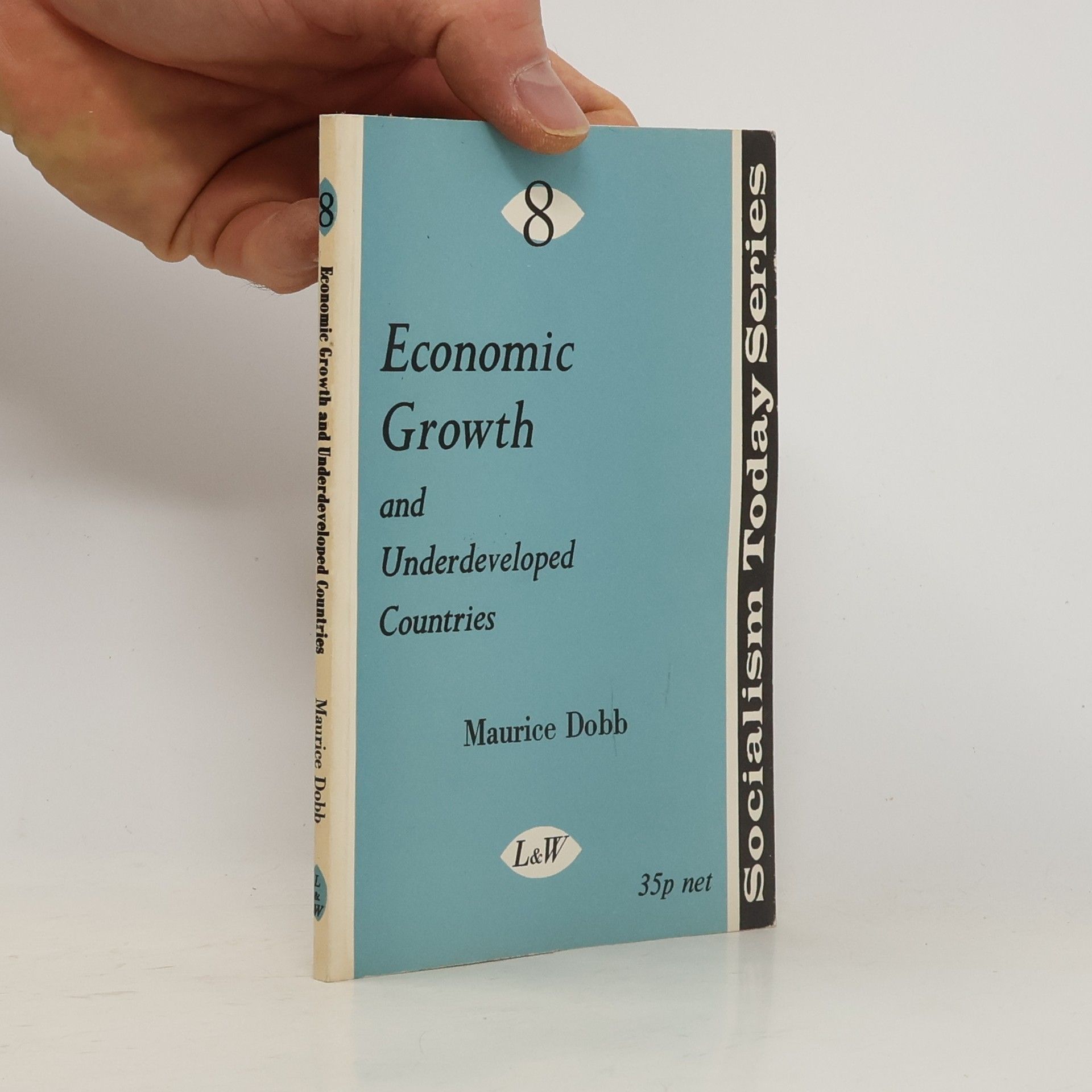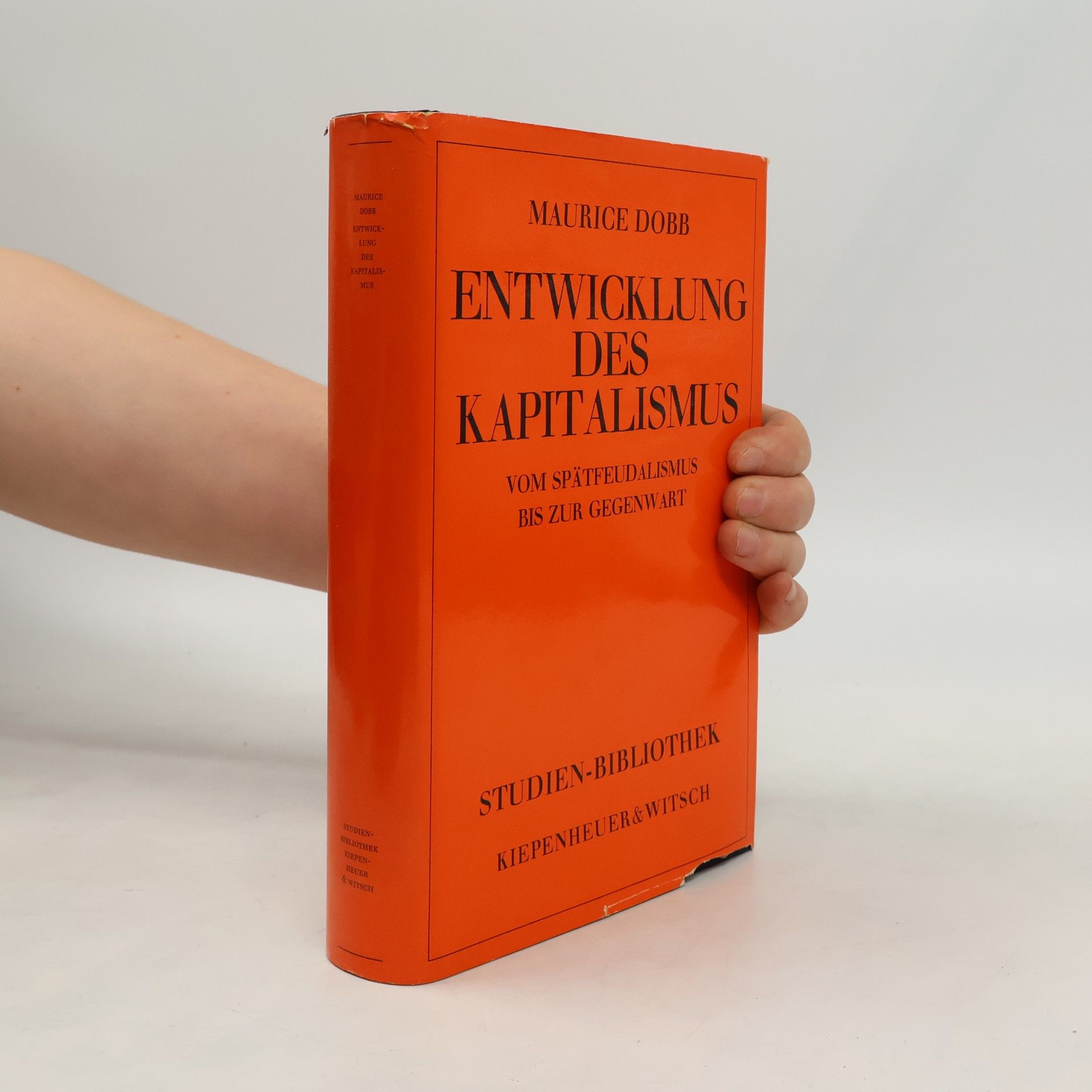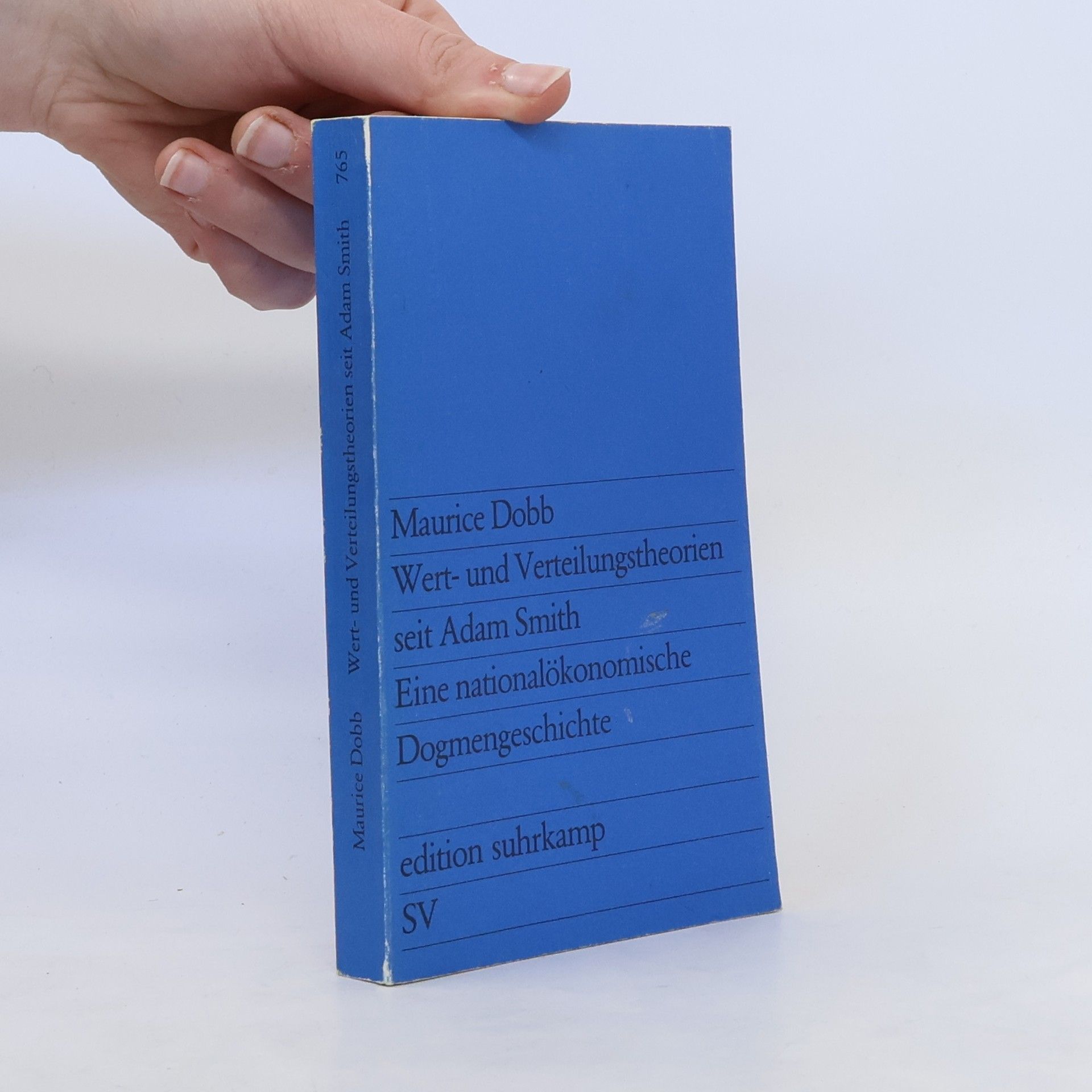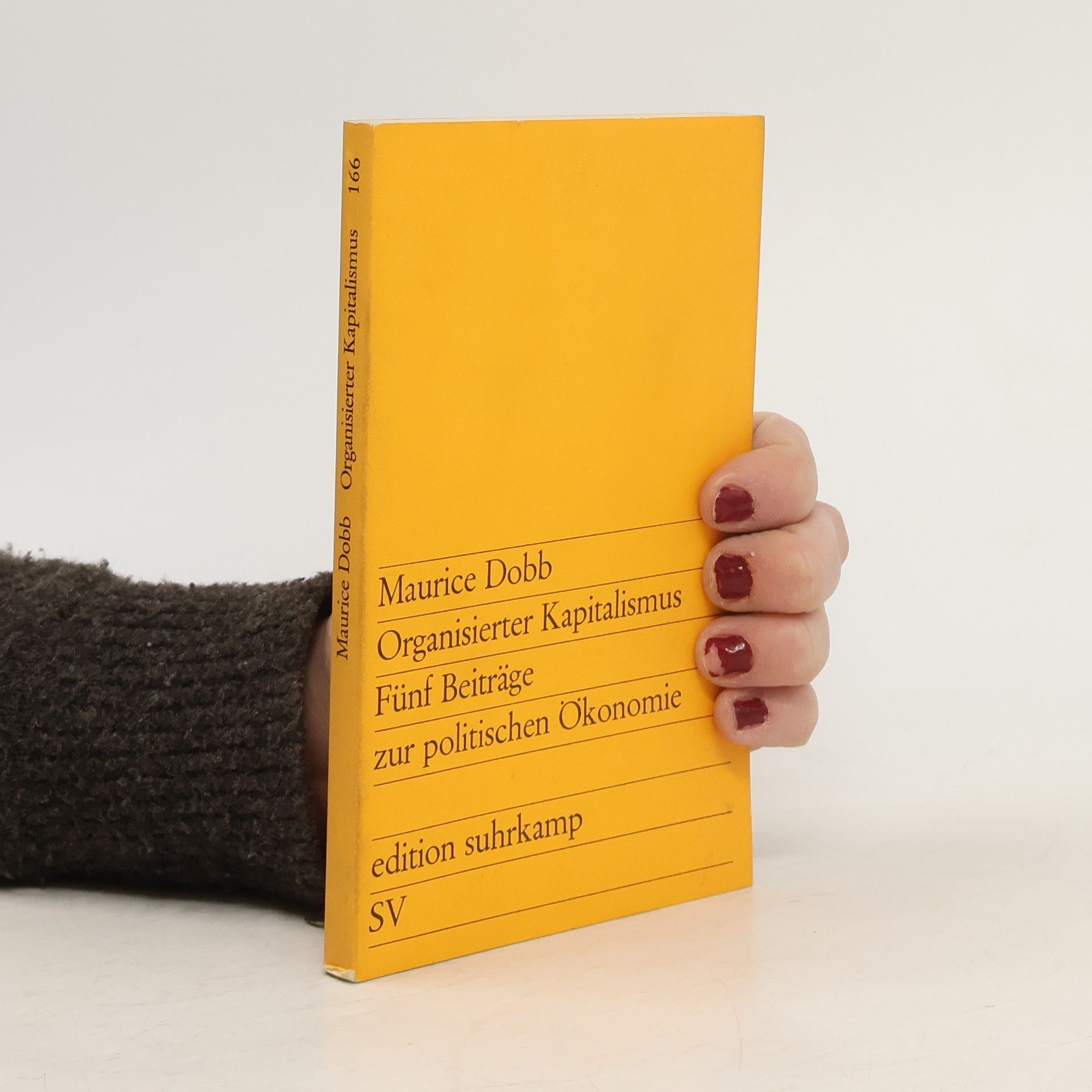Organisierter Kapitalismus
Fünf Beiträge zur politischen Ökonomie
Maurice Dobb war ein angesehener britischer Ökonom und ein herausragender marxistischer Denker des 20. Jahrhunderts. Seine Arbeit untersuchte rigoros ökonomische Theorie und Geschichte durch eine marxistische Brille. Dobbs Gelehrsamkeit befasste sich eingehend mit der Dynamik und Entwicklung kapitalistischer Volkswirtschaften. Sein intellektuelles Erbe beeinflusst weiterhin diejenigen, die sich mit kritischer Wirtschafts-analyse beschäftigen.






Fünf Beiträge zur politischen Ökonomie
Der kürzlich verstorbene britische Wirtschaftswissenschaftler Maurice Dobb, (»vgl. es 166: Organisierter Kapitalismus«) zählt zu den wenigen international hochangesehenen Vertretern seines Fachs; er hat als Methodologe und als Theoretiker gleichermaßen nachhaltig die neuere Nationalökonomie beeinflußt. Sein jüngstes Buch bestätigt den Ruf, der ihm vorausgeht: einer der führenden Interpreten wirtschaftlicher Entwicklungen und nationalökonomischer Theoriebildung zu sein. In systematischer Weise entfaltet Dobb an zwei herausragenden Problemstellungen – Einkommensverteilung und Wertlehre – die Entstehungs- und Klärungsprozesse der ökonomischen Theorie seit Smith (über Ricardo, Marx bis zu Keynes und Sraffa). Dies freilich – die Darstellung der ökonomischen Dogmengeschichte – ist nur die eine Seite der Dobbschen Argumentation; die andere bildet die ideologiekritische Auseinandersetzung mit der geschichtlichen Bedingtheit der ökonomischen Deutungssysteme und der mehr oder weniger »apologetischen« Funktion der aus ihnen abgeleiteten wirtschaftspolitischen Lösungsvorschläge. Es ist das große Verdienst der Arbeit von Dobb, den Erklärungsanspruch ökonomischer Theorien nicht nur logisch-immanent zu analysieren, sondern auch im Hinblick auf ihr Verhältnis zu der von ihnen beschriebenen Wirklichkeit.
Ideology and Economic Theory
The book explores the evolution of economic thought, particularly in relation to capital theory, through the lens of Sraffa's influential work, The Production of Commodities by Means of Commodities. It highlights Sraffa's role as a pivotal figure in reshaping discussions in economics, marking a significant turning point. The author also reinterprets nineteenth-century economic thought as comprising two distinct traditions often conflated under the term 'classical tradition,' emphasizing the critical response from Jevons.
Recognized for its cultural significance, this work contributes to the foundational knowledge of civilization. It has been selected by scholars for its importance in understanding historical and societal contexts, making it a valuable resource for those interested in the evolution of human thought and culture.
Focusing on the interplay between economic strategy and military preparedness, the book provides a detailed account of Soviet economic developments during a critical period leading up to World War II. It highlights the planning and performance of the Soviet economy in response to the rising threat of Nazism, offering insights into how economic measures supported military training and readiness.
Focusing on the Soviet economy's evolution, this book builds upon the author's previous work by detailing the historical trajectory and advancements up to the post-World War II reconstruction efforts. It includes a newly added chapter that explores the decade following the war, culminating in the announcement of the Sixth Year Plan. This comprehensive analysis provides insights into the economic strategies and challenges faced during a pivotal period in Soviet history.